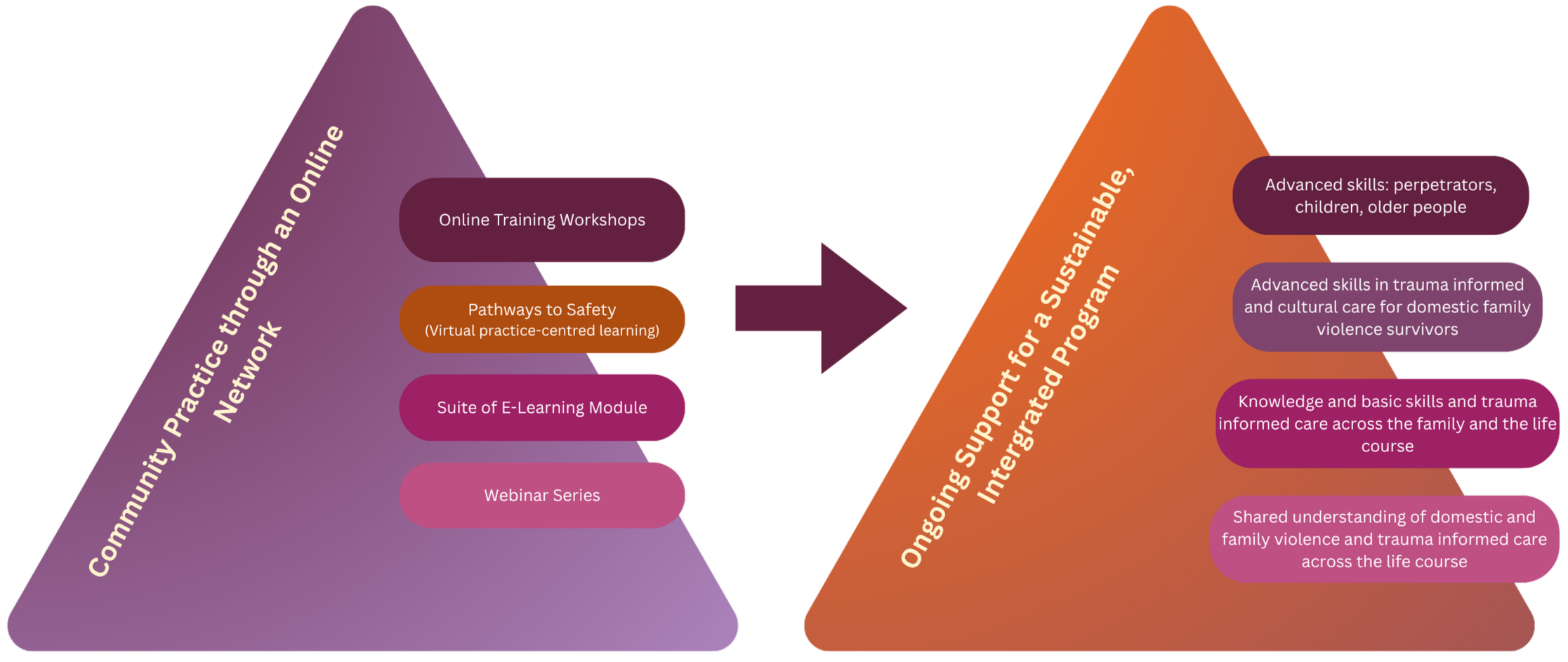The Readiness Program
Primary care’s readiness to address family violence
What is The Readiness Program?
The Readiness Program is a national training program for primary care providers to effectively recognise, respond, refer and record domestic and family violence using a trauma and violence informed approach.
The program offers a flexible, multifaceted training program to engage general practitioners, primary care nurses, Aboriginal Health Workers and Practitioners, and other primary care workers and practice staff through online workshops, practice-centred training, e-learning modules and a series of webinars.
Pathways to Safety
Part of The Readiness Program, this practice-centred training supports the whole primary care team to recognise, respond to, refer, and record domestic and family violence using a trauma- and violence-informed approach.
E‑Learning Modules
Developed under The Readiness Program, these flexible, self-paced modules build foundational knowledge and practical skills for engaging with victim-survivors, families, and people who use violence in a safe and confident way.
Who funded this program?
The Readiness Program was funded 2020-2024 and again in 2025-2026 by the Australian Government Department of Health under the Primary Health Care Quality and Coordination Program - Improving Health System Response to Family and Domestic Violence: National Training for Primary Care Workforce initiative until June 2026. The purpose of the grant is to build capacity of GPs and primary care workers to better support patients experiencing family and domestic violence. Led by Safer Families Centre, University of Melbourne, the program was initially developed in 2020 as part of a consortium with RACGP, Blue Knot Foundation and Phoenix Australia. Since 2025, the Safer Families Centre still offers some modes of the training and is currently seeking to secure funding to continue and expand the program.
Evaluation of the Program
The Safer Families Centre coordinated a mixed methods evaluation of The Readiness Program 2020-2024 including surveys of primary care staff before and after training, and interviews with participants and facilitators. Overall, the evaluation showed The Readiness Program was successful in achieving its aim to build capacity and systems that improved the knowledge, skills and confidence of primary care to respond to DFV. Survey data across all training formats, and data from Pathways to Safety interview participants showed that: the Program reached a large and diverse range of workers in primary care in Australia; a whole-of-practice inclusion and partnering with the Family Violence sector were strengths; and training was well-received and met participants’ expectations.
Read the full report and executive summary here.



